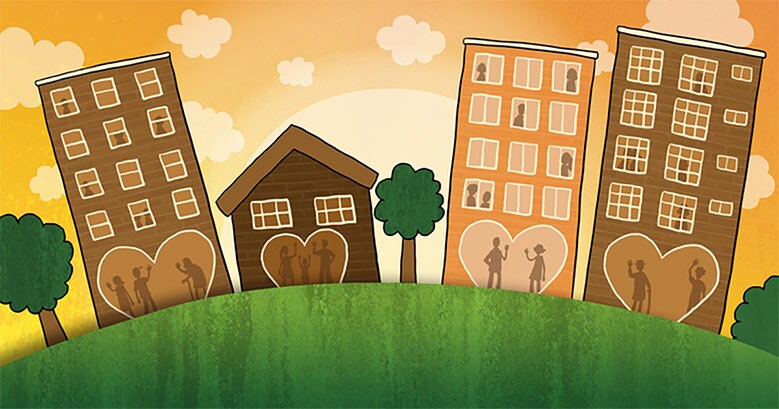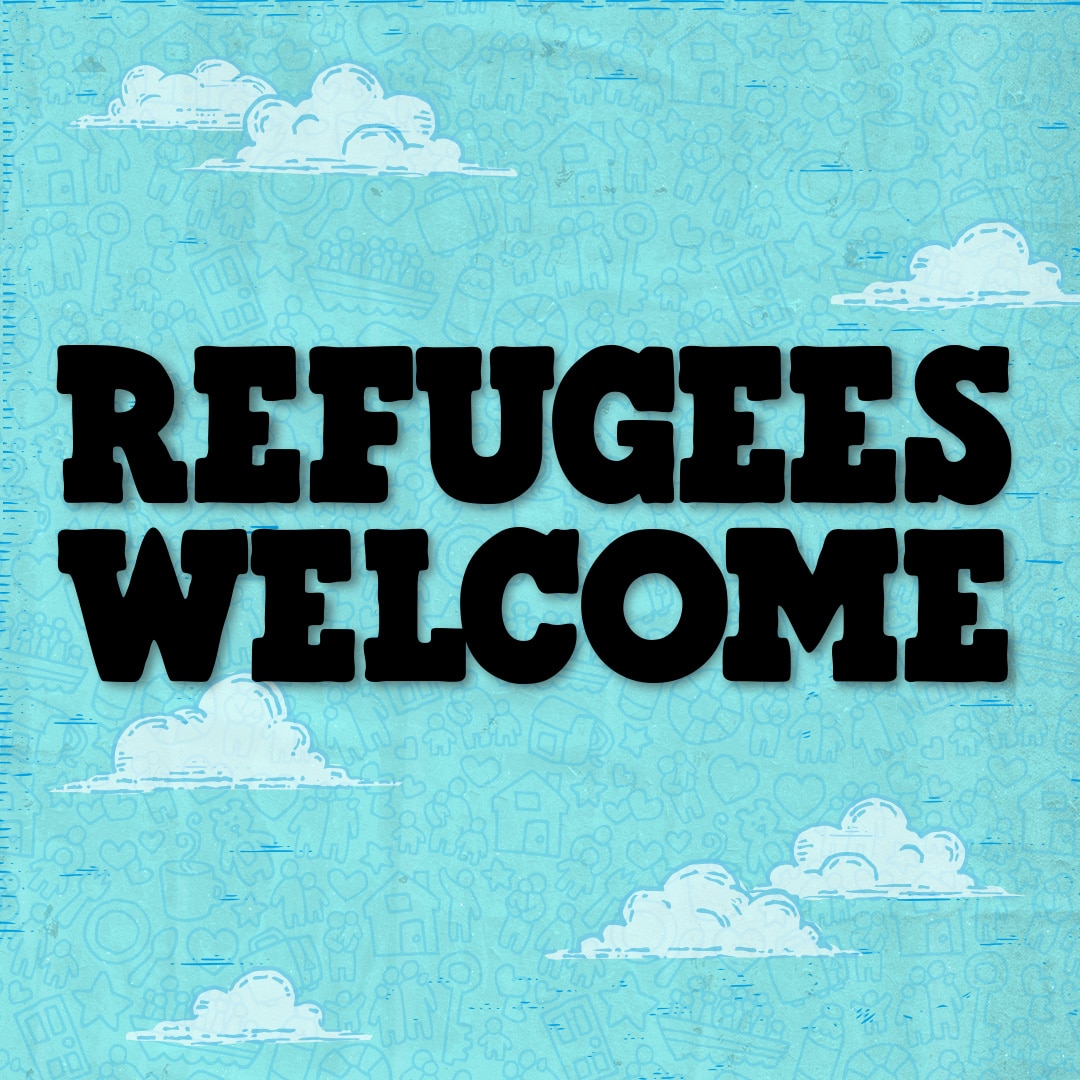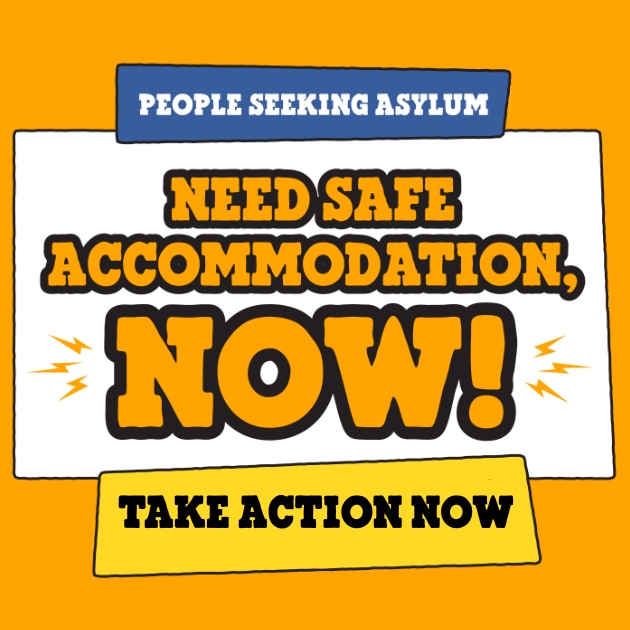
The entire world has been rocked by the effects of the coronavirus crisis. This isn’t easy on anyone, no matter who you are or where you live.
But for refugees — that is, anyone who’s had to leave their home to search for safety, no matter their official status — the stakes are even higher. Worldwide, there are more than 70 million people who’ve been forcibly displaced from home. As newcomers to a country, refugees’ don’t always have the same legal or social safety nets in place as other people. And a global pandemic just makes everything harder.
Ben & Jerry’s stands in solidarity with refugees. They’re our neighbours, our friends, and our family. And they’re facing some pretty substantial challenges right now.
-
1. Crowded Housing and Unsanitary Living Conditions
If you’re a refugee living through a global pandemic, that may mean living in very close quarters with others seeking asylum, being forced to share beds with symptomatic strangers, or even sleeping rough on city streets. We’re all trying to stay 2 metres apart right now, but for people living in densely populated refugee camps, that’s simply not possible.
-
2. Limited Access to Healthcare (or Fear of Accessing it)
Because many forcibly displaced people are still in the process of seeking asylum, meaning they’re waiting for a decision to be made on their asylum application, they’re often hesitant to seek out medical help for fear of landing in immigration detention. And some refugees face additional barriers to healthcare, such as transportation, lack of information, money, language, or fear of “hostile environment” policies.
-
3. Feeling Far from Loved Ones
Refugees don’t choose to leave their homes. They’re forced to. And they usually can’t take all of the people they love with them. Social isolation and loneliness is affecting people worldwide. But imagine what it would feel like to live through this in a country that’s not your own, where you might not speak the language, have a home WiFi connection, or even have the resources to top up your phone to call home.
-
4. No Income = Limited Money for Food
Many people seeking safety either aren’t allowed to work, or face barriers to employment due to language, legal restrictions, or discrimination. Yet, government support is often woefully adequate (in the UK, it’s £39.63 per week which is about £5.66 per day). You can’t stock up on two weeks’ worth of food on that budget, so weekly (at least) shopping trips are required. And when the shelves are bare due to panic buying and shopping around for cheaper food is impossible due to stay-at-home orders, that means many refugees are barely getting enough to eat. Last year, during the pandemic the UK Government reviewed asylum support and raised it by a meagre 3p per week (no, that’s not a typo!). It was more of an insult than an increase.
-
5. Government Delays
A person seeking asylum is forced to wait until the government reviews their case — but most governments have either suspended or delayed the processing of asylum claims and statelessness applications. In the UK, more than 75% of people in the asylum system have now been stuck in limbo for more than 6 months. The longer the delay, the more desperate the situation becomes — and the longer the backlog will be after operations resume.
Sweeten Up Your Inbox!
Subscribe now and we'll make sure you get the inside scoop on Ben & Jerry's fun and flavours! It's like dessert for your inbox, and you're going to want seconds.
Cone Together and Stand with Refugees
We’re all human and when it comes to COVID-19, we’re all in this together. In the last year we’ve seen communities come together like never before. Now it’s time to come together and stand with refugees. Join us.
Recent Articles
Sweeten Up Your Inbox!
Subscribe now and we'll make sure you get the inside scoop on Ben & Jerry's fun and flavours! It's like dessert for your inbox, and you're going to want seconds.


